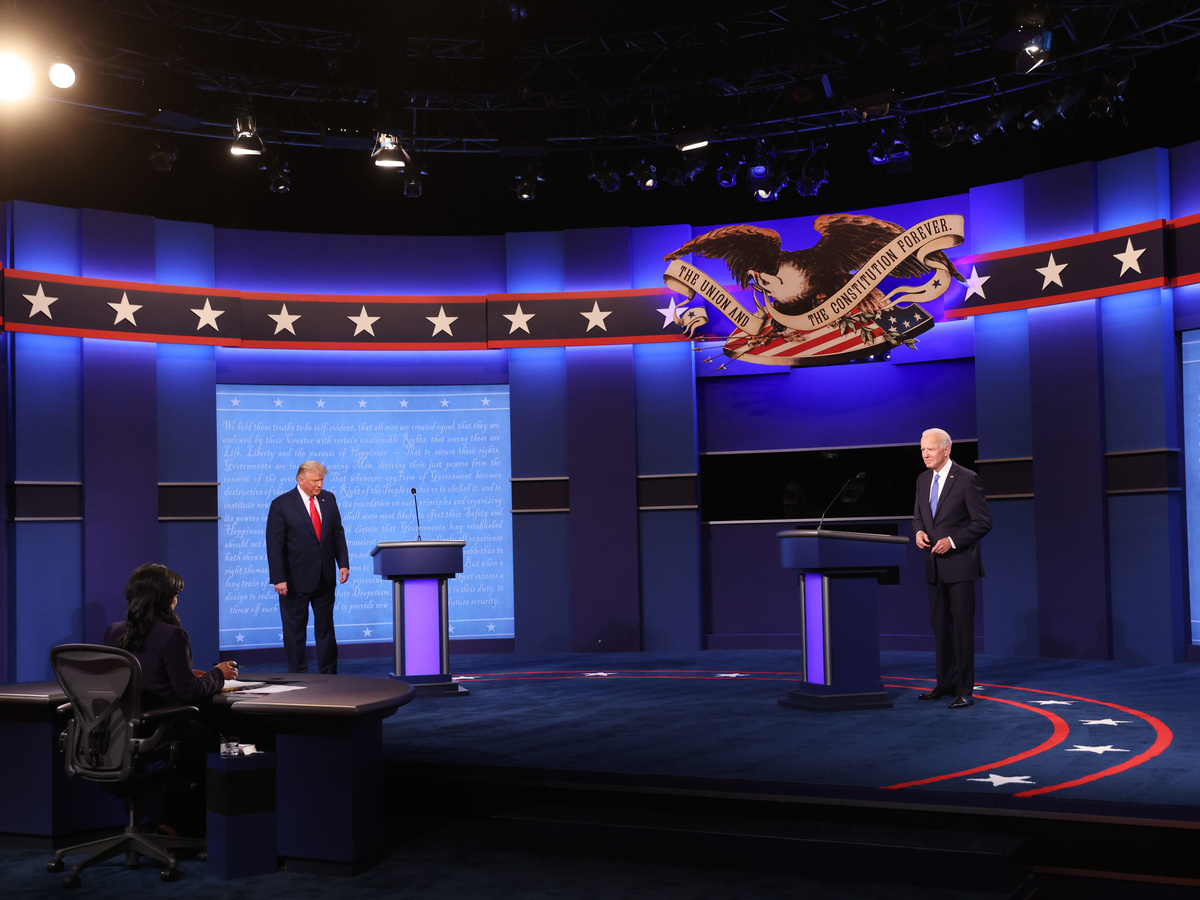
Former President Donald Trump Joe Biden take the stage for the final 2020 presidential debate in Nashville, Tennessee. So far, this election season Trump has refused to participate in any debates, and it's unclear whether there will be general election debates in the fall. Justin Sullivan/Getty Images hide caption

Former President Donald Trump Joe Biden take the stage for the final 2020 presidential debate in Nashville, Tennessee. So far, this election season Trump has refused to participate in any debates, and it's unclear whether there will be general election debates in the fall.
Justin Sullivan/Getty ImagesThe presidential debate has been a right of passage for both primary and general election candidates for more than thirty years.
Now in the midst of another election season, it looks like this well-established tradition might be fading away. But do debates inform voters, and do they change minds?
We take a look at how the modern presidential debate came to be, and what their absence would mean for candidates and voters.
Email us at
This episode was produced by Brianna Scott. It was edited by Courtney Dorning. Our executive producer is Sami Yenigun.

 Live Radio
Live Radio